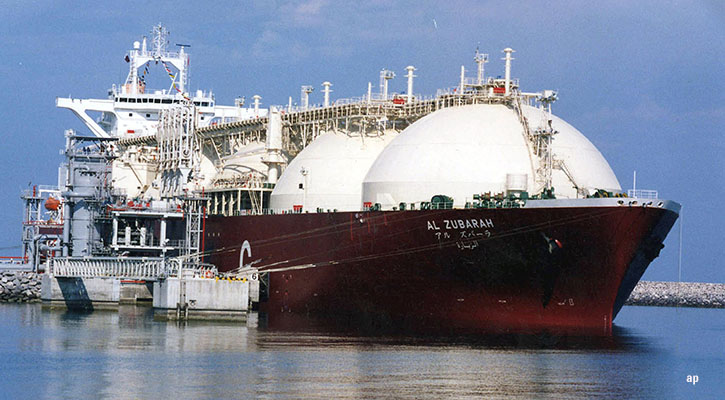Valerio Baselli: Hello, and welcome to Morningstar. The global market for thematic funds has expanded rapidly in recent years as they were able to capture investors’ imagination. Now in 2022, however, thematic strategies have been suffering as well, and investors now wonder what the future holds for this kind of investment. To talk about that, I'm joined today by Luis Berruga, CEO of Global X ETFs.
So, Luis, the outbreak of the Covid-19 pandemic was kind of a turning point for thematic funds, as it marked an acceleration in their development. Thematics have been under pressure lately, as well as almost all asset classes. But looking ahead, will the effect of the war in Ukraine, the monetary policies shifting and the recession, probably coming, lead to a new phase, possibly a negative one?
Luis Berruga: Great question. I mean, the reality is that we are seeing a lot of volatility in the marketplace. We have the geopolitical factors like Russia and Ukraine, China and the US, very high inflation. We're still dealing with supply chain issues. More recently, the energy crisis that we have seen, particularly in Europe, as a direct result of the conflict between Russia and Ukraine, and that's obviously putting pressure in the markets across the board.
That being said, Valerio, we're having more and more conversations with clients that look at thematic investing as very attractive opportunities at current valuation levels. More specifically, we're having, in the context of Russia and Ukraine, more conversations about cyber security and nuclear energy and uranium.
VB: All right, well, of course, these funds cover a variety of themes. Technological innovation has been probably the most popular theme among investors in recent years. Do you believe it will continue this way or do you see another theme that could dominate the years to come?
LB: I'm a big believer, quite frankly, that moving forward, the whole idea of energy transition is going to be a key theme that we're going to be talking about for the foreseeable future. I think the main reason behind that is, if you look at the climate change targets that governments all over the world have agreed upon, our estimates indicate that investment in those type of companies should be around $130 trillion between now and 2050. So, we expect a lot of capital going to companies in the renewable energy space or clean tech.
More specifically, a theme that we're particularly interested in and having lots of conversations with clients is electric vehicles for a number of reasons. One, we expect a fair amount of government support as we transition towards a more sustainable world. Two, the cost of the electric vehicle itself is coming down because the cost of lithium batteries continues to go down. And last, the charging infrastructure that has historically been an impediment for further adoption of electric vehicles continues to improve. And if you think about where we are in the cycle of adoption of electric vehicles, this is still very early, Valerio. Like electric vehicle car sales doubled in 2021 and it was still only 9% of total car sales. So, we believe there is still plenty of room to grow.
VB: Sure. As you said, our markets have been very volatile and this kind of strategies are volatile themselves. We saw it, for example, a few weeks ago in the US with Joe Biden statement on pardoning thousands of people convicted of marijuana possession under federal law, which has been interpreted as a decriminalization, which immediately pushed cannabis stock higher; indeed, some ETFs exposed to the cannabis sectors gained more than 30% in a few hours, only to lose most of the gains in the following days. So, considering this, how should investors use these strategies? What are the risks?
LB: That's a great question, Valerio. And I think it's very, very important that we educate investors how to effectively use thematic investing in the context of a portfolio. So, I have a few thoughts. One is, thematic investing is a long-term investment strategy, precisely for the reason that you pointed out. These strategies tend to be more volatile than the broader markets. So, a long-term mindset is particularly important.
The second point is, I would recommend investors to allocate anywhere between 5% to 15% in thematic investing strategies. Again, because of this reason of these themes tend to be high growth, high volatility type of strategies and can be significantly more volatile than the broader market. So, I think that's important.
And finally, diversification. Just like you apply to any other part of your portfolio, I typically suggest for that 5% to 15% bucket to allocate anywhere between three to five different themes as a way to reduce idiosyncratic risk.
VB: Finally, Europe is the biggest market for thematic funds, although compared to the U.S,. thematic investing is more an active management story here in Europe. What are your plans and your outlook concerning the European market?
LB: Great question. We are very optimistic about the European market for number of reasons. First of all, it's the second largest ETF market in the world and is growing very rapidly. I mean, we saw that in 2021, where assets grew by over 25%. Of course, a big part of that was driven by market performance, but we saw very healthy flows as well. And probably, more importantly, in my opinion, is that the transition that we saw – that we have seen in the U.S. from mutual funds to ETFs over the last 10 years is now happening very quickly in the European market.
Just a couple of data points. I mean, roughly speaking. This year, we have seen over $50 billion in net inflows going into ETFs, whereas we have seen over $130 billion in outflows in mutual funds. So, that's a very powerful trend, and I think it's going to continue for a while.
And more specifically about the Italian market, we're very optimistic because we're having great conversations with Italian investors. They definitely see their value proposition of thematic investing, which is an area that we are very focused on. So, we're very, very excited to continue to build our capabilities to serve the Italian market, and if everything goes well, we expect to open our office in Italy, hopefully, in the first quarter of 2023. And we're putting together a great team of people to support our clients in the Italian market.
VB: Well, see you soon then. Thanks again to Luis Berruga. For Morningstar, Valerio Baselli. Thanks for watching.




























